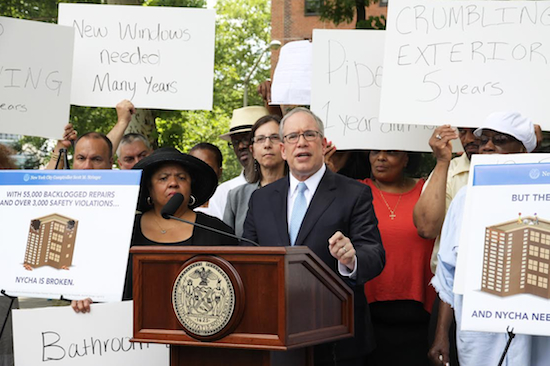Stringer: NYCHA has made little progress in clearing repair backlog
Names Brooklyn Projects With Worst Records

The New York City Housing Authority (NYCHA) makes tens of thousands of New Yorkers wait for weeks, months and sometimes even years before fixing serious problems such as asbestos, missing carbon monoxide detectors, broken elevators, leaky ceilings and faulty stoves, according to an audit released this week by New York City Comptroller Scott M. Stringer.
The audit also revealed that NYCHA drastically underreported data on its maintenance backlog; failed to properly train staff to get rid of mold, mildew, and excessive moisture; and fell dramatically short when it came to meeting its own deadlines for repairs.
“For the 400,000 New Yorkers who live in NYCHA housing, the authority’s handling of repairs is a case study in mismanagement,” Stringer said. “There is a backlog of over 50,000 repairs — including thousands that have been ignored for over a year.
“During our audit we learned of one tenant who had a leaky ceiling that was so bad that she had to cancel Christmas, and another who had to deal with a leak for more than a decade,” he said.

Brooklyn Boro
View MoreNew York City’s most populous borough, Brooklyn, is home to nearly 2.6 million residents. If Brooklyn were an independent city it would be the fourth largest city in the United States. While Brooklyn has become the epitome of ‘cool and hip’ in recent years, for those that were born here, raised families here and improved communities over the years, Brooklyn has never been ‘uncool’.